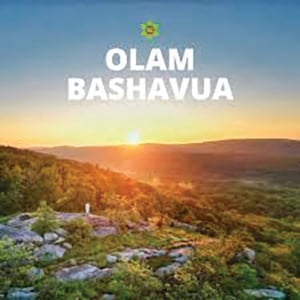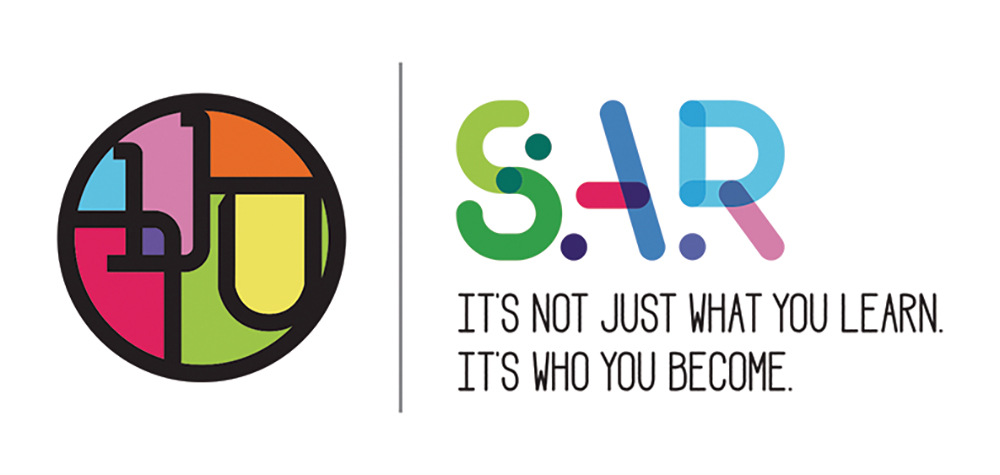
(Courtesy of GrowTorah) With GrowTorah’s Olam BaShavua, our goal is to educate, inspire and inform by highlighting the positive advancements in environmental work that resonate with our core values: incubating emunah, stewarding the earth, living tzedaka and compassion for creatures.
Each week, you’ll discover uplifting stories of environmental restoration, engaging Torah connections, hands-on activities and opportunities to get outdoors with our community and friends. We hope this empowers you to take action in your personal and professional spaces, enjoying this beautiful earth and making a meaningful impact on the world around us.
As we launched this on Hoshana Rabbah 5785, our tefillot are with our brothers and sisters in Eretz Yisrael, and with all of Am Yisrael around the world. The pain of last Simchat Torah is still so raw for all of us, and we want to use this Torah learning to serve as an aliyah neshama for those murdered on Simchat Torah 5784 (10/7/23), and all those who perished defending Eretz Yisrael since. In the merit of the Torah we share here, may we see peace soon for all of Am Yisrael.
Here’s this week’s Olam BaShavua:
- Catch the Spectacular Leonid Meteor Shower in November!
The Leonid meteor shower will peak on the night of Nov. 16 to 17, 2024, providing a stunning celestial display visible across the entire United States, including New Jersey and the tri-state area. For the best viewing experience, find a dark location away from city lights, dress warmly and give your eyes time to adjust to the darkness to catch the brightest meteors amidst the nearly full moon’s light.
Celestial Awe in the Torah: “The heavens recite the glory of God, and the sky tells of the work of His hands,” (Tehillim 19:2). This passage reflects the belief that the beauty and grandeur of the heavens and sky reveals God’s glory and creative power.
- From Surplus to Sustainability
In 2023, the Global Foodbanking Network cut carbon emissions by 1.8 million metric tons by rescuing surplus food. This effort not only combatted food waste, but also fed 40 million people in 45 countries and reduced environmental impact by the equivalent of removing 400,000 cars from the road for a year. (EcoWatch)
GrowTorah Connections: Bal tashchit is the mitzvah of “not wasting,” based on the pasuk from Ki Teitzei (20:19-20). Reducing food waste is a beautiful example of keeping this mitzvah, and, in this example, on such a huge scale.
- (Habitat) Connection Is Key
The world’s largest wildlife crossing in California is being built to allow wildlife to safely navigate busy roads, promoting biodiversity and reflecting a shift in conservation towards preserving habitat connectivity to ensure species survival. (NYT)
GrowTorah Connections: There are many Torah sources that discuss the value of compassion for creatures in the Torah—such as Proverbs 12:10, which highlights the importance of kindness toward animals, and explains that our treatment of animals reflects our sensitivity to God’s creations. The chapter encourages responsible stewardship of animals, advocating for mindful interactions and environmental practices that support the welfare of all living beings.
- Proof in Preservation
A comprehensive study by the University of Oxford has confirmed that targeted conservation actions effectively halt and reverse biodiversity loss across various ecosystems and species, proving that nature conservation really does work. (University of Oxford)
GrowTorah Connections: One view of conservation in the Torah emerges in Noach’s story, which highlights our responsibility to steward the natural world. Noach’s foresight and care—seen in his building of the ark to preserve life—model proactive environmental responsibility. His actions remind us that safeguarding creation is an enduring duty owed to future generations.
Subscribers to Olam BaShavua receive these weekly stories, along with links to long-form articles and related divrei Torah from the GrowTorah Environmental Torah Library. To learn more and subscribe, visit www.growtorah.org/olam.










